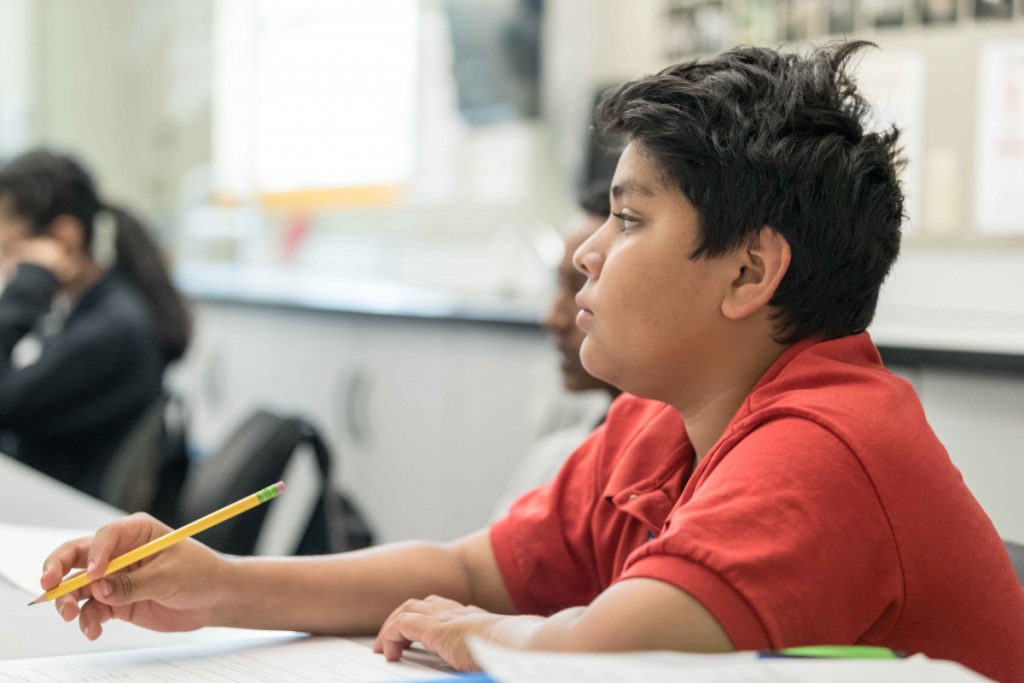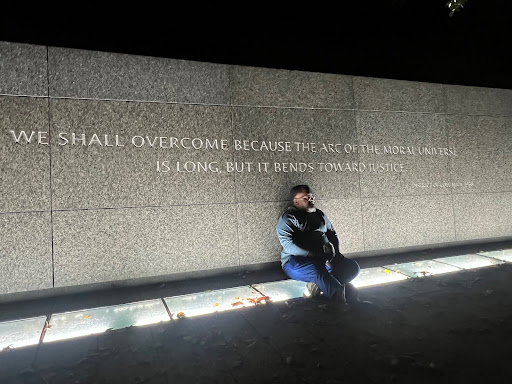As the leader of DSST: Montview Middle School, I see providing an equitable education to each and every one of our students as how we actualize DSST’s mission.
We see this come to life on our campus through one of our guiding themes: Grade-level work is equity work. There are far too many schools across our country where students of color, and students who are marginalized, do not receive access to grade-level work.
I am proud to work for a network and with a team aligned in the deep belief that our work is justice work. We are committed to more than putting grade-level work in front of students. We are also committed to our continuous growth and improvement to ensure we are supporting students in developing the skills, habits, and mindsets necessary to be independent learners and to grapple with the complexities and challenges of our world.
I fundamentally believe that schools are a place of learning, and not just for kids. If adults are learning and growing, it has a positive impact on student outcomes and develops teachers to be the best version of themselves.
We are an incredibly diverse community at DSST: Montview Middle School, and there is strength and beauty in that diversity. Research shows that students who attend racially and socioeconomically diverse schools—regardless of their socioeconomic status—have stronger academic outcomes.
We also believe diverse communities enhance empathy, perspective, problem-solving and critical thinking, self-confidence, leadership skills, and civic engagement.
We saw Median Growth Percentile (MGP) growth in English Language Arts (ELA) and math this year and exceeded our own internal target for ELA MGP. Median Growth Percentile is the key measure of student growth in K-12 education.
Our Colorado Measures of Academic Success (CMAS) data for multilingual learners is also exciting. Montview has the number one English Language Arts Median Growth Percentile for English learners in grade eight out of all 81 6-8th grade schools in the state and the number one math MGP for English learners in grade six out of all 24 6-8th grade schools in Denver Public Schools.
The outcomes are exciting to see for students and we know a lot of work went into achieving this impact. There are a few things we’ve done and are working on as a campus that have contributed to the successes we’re seeing in our data.
Aligning key culture systems
One of our big initiatives was aligning as a network on key culture systems. We did a lot of work to reset our culture systems and raise the bar across the school. When you raise the bar for students, they will rise to meet it.
Additionally, the team was invested in going all in on our new culture systems. This had a tremendous impact on creating consistency across classrooms and grade levels so students could focus on the work of learning. It’s a beautiful example of how culture and instruction work together within a school to create strong cultures of learning.
Each year campuses send teachers to Constructing Meaning training to develop their knowledge and skill in intentionally incorporating language supports and language instruction into their classrooms. Those who attend take the learnings from this training and apply it to their classroom practices.
Last year, we had some of our science and math teachers attending and they incorporated intentional language supports into their lessons. When we align as a team and drive toward a shared vision, we can move the needle for students.
We have done a lot of work building academic culture with our students. We have spent time as a staff team anchoring in what it means to be an independent versus a dependent learner, grounded in the research from Zaretta Hammond.
When we think about an assessment like CMAS, it’s not just a state test, it represents a rigorous grade-level bar and our charge is to ensure we are developing our students to be independent learners who can grapple with complex, rigorous, and grade-level work.
We have an iReady block four days a week, which focuses on research-based intervention to provide all students with instruction at their level. For many students this is a time to fill foundational gaps, ensuring that they are receiving grade-level work in their classrooms.
Additionally, we incorporate social-emotional learning several times a month. It’s a space to bring STEM mindsets to life with mini-lessons and equip students with the necessary skills for the classroom, but in a relaxed setting. We create learning environments that are safe for kids to regulate their emotions so that learning comes with fewer barriers.
Aligning our culture across the network has taken some of the lift off teachers and ensures all our students understand the expectations across all classrooms and grades. These foundational beliefs take the guesswork out for students so they can just learn, allowing for greater collaboration and skill development amongst leaders and educators.
I moved to Denver and chose to work for DSST Public Schools because the network puts such an explicit stake in the ground around diversity, inclusion and equity work. I personally feel very aligned with the work we do as a network and couldn’t be prouder to fight for all our students in their pursuit of success.




